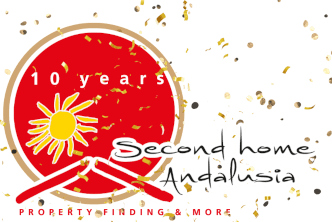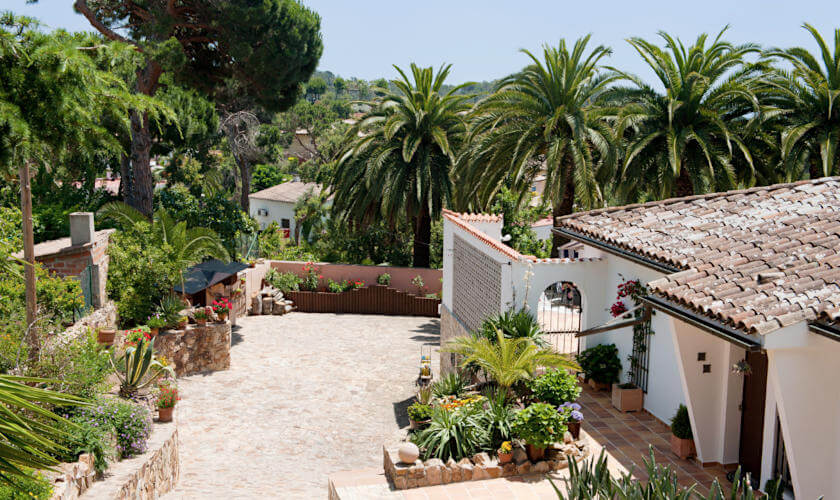-
09
Sep 2024
Whether or not to rent out your holiday home
One of the reasons you might want to buy a house in Spain is to rent it out, for example when you're not there or during the hot summer months. It can be a nice way to recoup some of the fixed costs that come with the house. To rent out a house or flat in Andalusia, you need to go through a number of steps and the house must also meet various requirements. In this blog, we would like to take you through what to look out for.
NEW LAW SPRING 2024
Previously, it was compulsory to apply for a rental license, but since the spring of 2024, the rules have been tightened up and enforcement has been improved. The law aims to strike a good balance between the livability for residents in a village. city or apartment complex and growing tourism. With the rules that have now been laid down, the government wants to ensure that tourist rental is better organized, which also keeps it in balance with other types of tourist accommodation. This should ensure a sustainable and high-quality supply.
In addition, the law should help counter unfair competition, including from people who rent out their homes illegally. These illegal rentals harm the regulated tourism sector, escape government control and lead to black money circulation. Moreover, it can cause conflicts with local residents. This protects the compliant tourism industry and counters unfair competition. Below, we briefly explain how it works if you want to rent out your house or flat.
Applying for an RTA licence
If you want to start using a property for short-term rentals (less than 2 months) through commercial rental websites, you need to apply for a license from the Registro de Turismo de Andalucia (RTA). Booking sites like airbnb, Booking.com, Holiday Home, VRBO.com and all other major booking sites may only include you on their website if you have a registration number for this purpose.
You can do this application yourself but through the Junta de Andalucia but, as everything has to be done in Spanish and you will also have to answer some specific questions, we advise you to have this application done through a lawyer or your accountant. The latter can also advise you if any additional documents are needed.
Stated requirements
In principle, an RTA licence is always granted if you meet all the conditions. In addition, a further inspection may follow in which an on-site check is carried out to see whether the house meets the right conditions. This inspection will take place by appointment. For instance, the inspector will check whether the following items are present:
- Smoke alarm and fire extinguisher
- First aid kit
- Operating instructions of all electronic equipment
- Sufficient ventilation and windows in every room
- Heating and cooling mandatory in urbano (air conditioner or fan) In rural houses this is not mandatory, but is advised
- Tourist information, complaints book and emergency phone numbers in a visible place
- Owners' Association regulations (if applicable)
- Maximum 4 guests per room or 15 if you rent the house in total
- 2 bathrooms for more than 5 guests and 3 for more than 8 guests
- Linen, towels etc must be changed regularly, cleaning service
- repairs and maintenance must be done on a regular basis
- key service, meet&greet
Furthermore, the property must be equipped with furniture, kitchen utensils and cutlery, linen for bathrooms and kitchen.
- Each bedroom must have a wardrobe.
- There should be an internet connection and television (except in those areas without coverage).
Fines ...
Failure to comply with the guidelines or follow the law can result in fines ranging from 10,000 € to 600,000 € depending of course on the severity of the offence. Think of not correctly stating the exact location and registration details of the house in advertisements, not sharing the ownership papers or illegally renting out rooms cq the house.
Different licences
There are different licenses for being able to rent out a holiday home. For instance, there is a difference between ‘urbano’ (in a village or town) and ‘rustico’ (campo, in the countryside). These may be different criteria from how the house is registered in the Property Register. In addition, rural licenses are again subdivided into ‘Vivienda Turistica’ (VTAR) and the more extensive Casa Rural.
Urbano: For this, the above are mandatory (set requirements). Above that, a License of First Occupation (Licencia de Primera Ocupación ) is compulsory. If the property does not have this (yet), your lawyer may be able to support you in this, e.g. by requesting a copy of the old LPO from the municipality or by applying for a new LPO. Incidentally, this can be expensive. It is therefore important to have your lawyer look into this before buying a house.
Vivienda turistica: You rent out your entire house to guests without being there yourself. No additional services such as breakfast, drinks or lunch may be offered. You need a specific nameplate with your VTAR number to be placed visibly at the road.
Casa rural: You need this license for a B&B, hotel, ed. You run this like a business and you must therefore be at least autonomo (self-employed) for it. Sometimes a business opening license also needs to be applied for at the municipality. This is done through an architect who checks the house. location etc. for a number of technical requirements. The Casa Rural license also requires a specific nameplate that must be clearly visible.
Other conditions for renting out
Besides having the correct license, you are obliged to digitally register all guests (aged 16 and over) staying in the house with the Guardia Civil within 24 hours of arrival. For this, you will need a copy of the guests' identification documents, which you should keep in your possession for a year in case an inspection follows. Not professionally renting to family or friends, by the way, is allowed without an RTA license and tax declaration. If you are not present in your house yourself, you should in principle also report to via the app of the Guardia Civil.
In Andalusia, even as a non-fiscal resident, there is a duty to file quarterly returns (whether or not through an accountant/administration firm) of income and expenses from the property. You pay 19% tax on the profit.
Would you like to know more about renting out your holiday home? We would be happy to tell you more about it in the run-up to buying your Spanish dream home.




